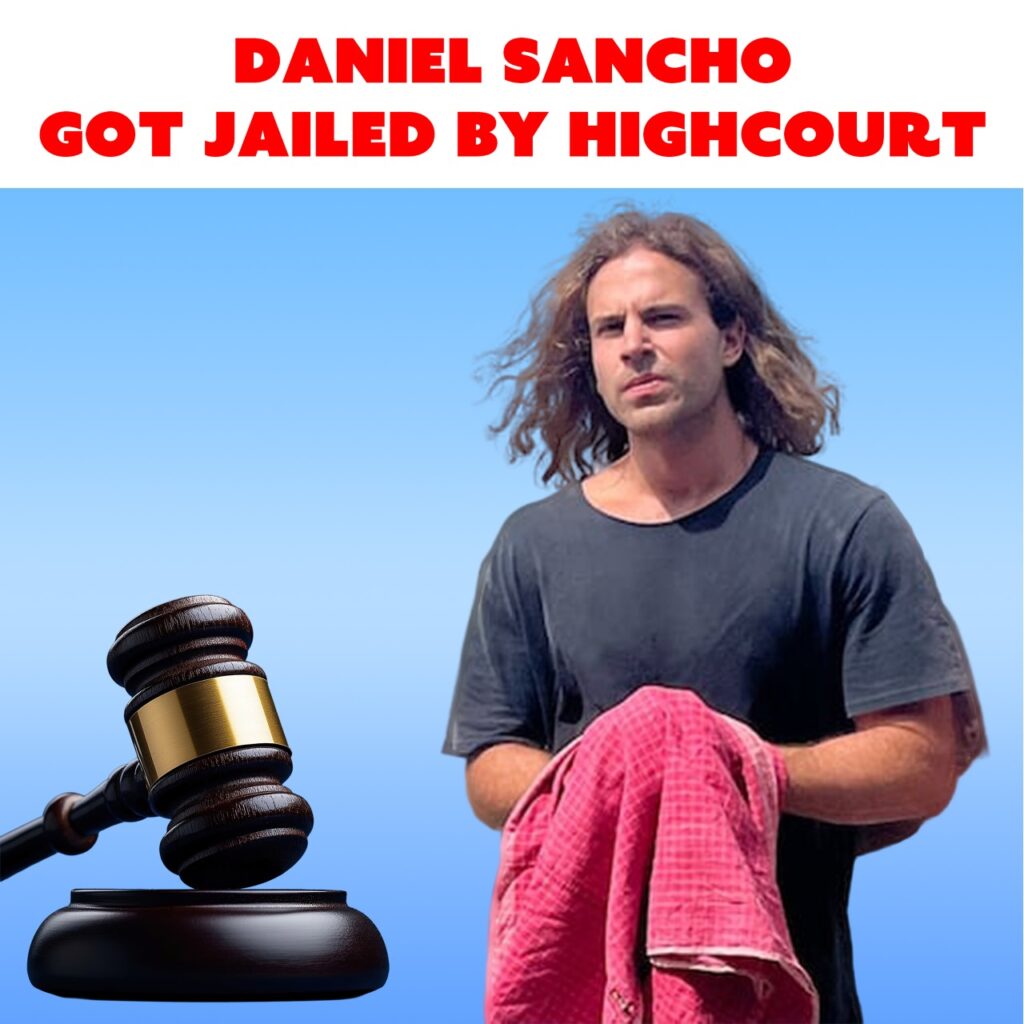Daniel Sancho Bronchalo, a chef from Spain known for his YouTube channel and son of famous actors Rodolfo Sancho and Silvia Bronchalo, became widely recognized in August 2023 after receiving a conviction in Thailand for the murder and dismemberment of Colombian doctor Edwin Arrieta Arteaga on Koh Pha‑Ngan island. On August 29, 2024, the Koh Samui court convicted him, sentencing him to life in prison, which was originally a death penalty but later reduced because of his assistance to authorities. He was also required to pay around 4 million baht (approximately $125,000) as compensation to Arrieta’s family.
Sancho’s living conditions at the Surat Thani prison have reportedly changed while he was incarcerated. In early July 2025, his legal team remarked that he resides in a single cell, has weekly videoconference access—occasionally uncensored—with his father, lawyer, and a psychologist, and dedicates a significant portion of his time to writing memoirs concerning the case and his time in prison. In contrast, reports released months prior detail major challenges in adjustment: Sancho resides in a packed cell block with eighteen other inmates, facing limited English skills and a lack of fellow foreigners, which heightens his vulnerability, increases stress, and raises worries about his well-being and possible self-harm.
In Spain, the sensational aspects of the case—highlighting a celebrity’s son, claims of a romantic and financial link to the victim, and explicit details of the crime—captured national attention. A documentary named El Caso Sancho, which debuted in April 2024 on Max (previously HBO Max), emerged as the platform’s top-viewed Spanish-language true-crime project, featuring interviews with friends, family, and legal specialists globally. According to reports from Spanish media, Sancho and Arrieta might have had a relationship originating in Madrid in 2022, allegedly involving financial dependencies; his defense claims that several disclosed details—regarding ex-girlfriends and romantic intentions—were invented or misinterpreted. The defense has also contended that important witnesses and evidence were overlooked or improperly handled in the original trial, stressing that Sancho’s confession might have come from coercion and confusion regarding Thai legal paperwork.
Diplomatic efforts continue: according to a 1987 bilateral agreement, Spain has the option to ask for Sancho’s transfer to complete his sentence in Spain after a minimum of four years, contingent on meeting the compensation condition; Spanish civil authorities currently offer him restricted consular oversight, psychological assistance, and family mediation. Nonetheless, specialists caution that the duration of the appeal process and Thailand’s legal system—which offers few assurances during retrials—create unpredictable results. Some observers regard his prominent status as a double-edged sword: it draws public scrutiny and media focus in Spain, yet it may also hinder legal processes due to politicization and the influence of public opinion.
Daniel Sancho’s case thus remains one of the most closely watched Spanish criminal stories of recent years—blending true‑crime intrigue, international legal complexity, and unresolved disputes over premeditation, self‑defence, and procedural fairness.

